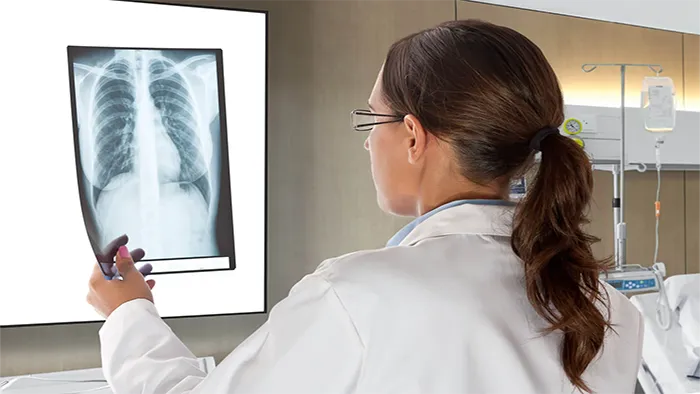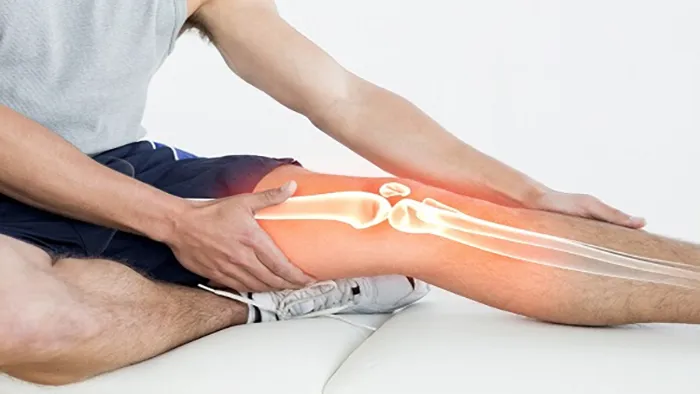A joint is a structure in the body where two or more bones connect. Joints are found throughout the body, such as in the feet, ankles, elbows, hips, wrists, fingers, shoulders, and other parts.
Soft tissues surround the joints in the body, providing protection. For instance, these tissues act as a cushion for the joints. Accumulation of fluid in these tissues can cause swelling in the joints, as well as pain and stiffness. The affected joint may also appear abnormal in size and shape.
Joint swelling can be a standalone issue or a symptom of another health problem.
Symptoms of Swollen Joints
Inflammation of the tissues connecting two bones and other structures around them is called joint inflammation. This swelling typically occurs due to an injury around the joints. Joint swelling is a symptom in itself, but other symptoms may also be present, including:
- Stiffness in the joints
- Pain
- Redness in the affected area
- Warmth of the skin around the joint
Inflamed joints are unable to function properly and movement may be limited.
Swelling may occur in a single joint or multiple joints, depending on the cause. Other symptoms commonly related to joint swelling may include:
- Swelling of an entire limb (such as an arm or leg)
- Loss of function of the affected limb
- Fever
- Headache
- Stomach pain
When to see a doctor?
A doctor should be consulted if the swelling in the joints is related to the following conditions:
- Pain due to a serious injury
- Disfigurement
- High fever
- Persistent symptoms
- Difficulty performing daily tasks.
What causes multiple joints to swell?

By the way, arthritis is the main cause of swelling in the joints. However, there are some other diseases and physical problems that can also cause swelling in the joints. These include:
Osteoarthritis: This is the most common type of arthritis. It occurs when the cartilage in the joints begins to deteriorate, causing the bones to rub against each other and causing swelling, pain, and stiffness in the joints.
Rheumatoid Arthritis: This is an autoimmune disease in which the body’s immune system attacks healthy tissues and cells, causing inflammation in the joints and damaging the membrane that covers them.
Gout: This occurs when the level of uric acid in the body increases, causing uric acid crystals to form in the joints and causing swelling.
Psoriatic Arthritis: This is another autoimmune disease in which the immune system attacks the skin and joints, causing swelling, pain, and stiffness.
Septic Arthritis: This occurs when an infection in the joint, usually caused by bacteria, viruses, or fungi, causes swelling.
Other causes of swelling in the joints include:
- Injuries to the joints, such as fractures, dislocations, ligament damage, or tendon damage
- Inflammation and irritation-related diseases, such as ankylosing spondylitis or systemic lupus erythematosus
- Underactive thyroid (hypothyroidism)
- Sclerosis, which occurs when inflammatory cells accumulate in the body
- Rheumatic fever, which is usually caused by strep throat or scarlet fever
- Tendinitis, which is characterized by swelling and redness in tendons.
Diagnosis of Swollen joints
Swelling of the joints should only be diagnosed by a doctor. During the examination, the doctor first checks the swelling of the joints and asks the patient several questions at the same time, such as:
- When did the joint swelling start?
- Which body part has the most swelling?
- How severe is the swelling?
- What triggers more or less swelling?
In addition, the doctor may request several tests to confirm the condition, including:
- Joint aspiration test (removing a fluid sample from the joint with a needle for examination)
- Blood test
- X-ray
Can joint inflammation be cured?
Based on the underlying causes of joint swelling or inflammation, the doctor will prescribe the appropriate treatment. If the swelling is due to a joint injury, the doctor may suggest some simple home remedies, such as:
- Cold compresses
- Wrapping the affected area with a light cloth or elastic bandage
- Keeping the affected area above heart level
- Over-the-counter (OTC) anti-inflammatory and pain-relieving medications
The doctor may also advise avoiding putting weight on the affected joint and minimizing movement for a certain period of time. The length of time will depend on the individual case and should be discussed with the doctor. It is important to balance rest and physical activity, as prolonged inactivity can affect the range of motion of muscles and joints.
For individuals with chronic conditions such as osteoarthritis or lupus, the doctor may create a personalized treatment plan that is essential to follow. The treatment for swollen joints may include medications, physical therapy, and other remedies based on the symptoms.

